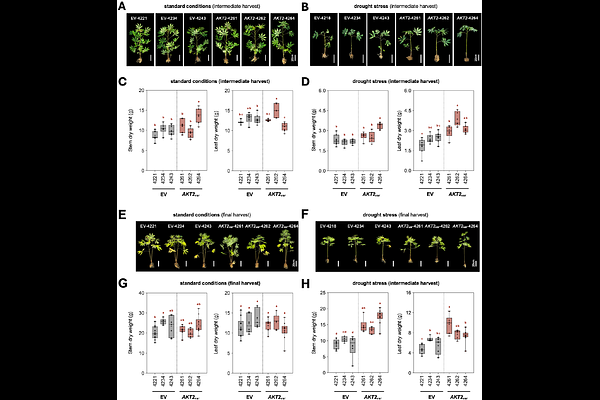A non-rectifying potassium channel increases cassava drought tolerance and storage root yield

A non-rectifying potassium channel increases cassava drought tolerance and storage root yield
Zierer, W.; Fritzler, M.; Chiu, T. J.; Anjanappa, R. B.; Chang, S.-H.; Metzner, R.; Quiros, J.; Lamm, C. E.; Thieme, M.; Koller, R.; Huber, G.; Muller, O.; Rascher, U.; Sonnewald, U.; Neuhaus, H. E.; Gruissem, W.; Bellin, L.
AbstractCassava (Manihot esculenta) is an important crop for food security in the tropics, particularly for smallholder farmers in sub-Saharan Africa, where yields are often severely limited by pathogen pressure, nutrient deficiency, and water scarcity. We expressed a non-rectifying Arabidopsis thaliana potassium (K+) channel gene version, AKT2var, in the vascular tissue of cassava plants. The transgenic cassava plants had higher electron transport and CO2 assimilation rates, a higher bulk flow velocity, and increased source-sink carbohydrate transport, as demonstrated by comparative 11C-positron emission tomography and tissue-specific metabolite profiling. Cassava storage root yield was significantly increased in greenhouse experiments and in a multi-year field trial conducted under subtropical conditions. AKT2var plants were also more tolerant to drought stress and had higher storage root yield. Targeted alteration of K+ transport is therefore a promising strategy to improve cassava productivity without additional fertilizer input and in climate-adverse growing conditions.